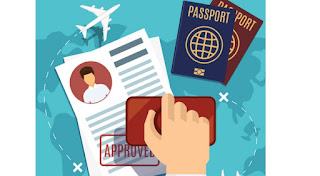Implications of ICE announcement on F1 foreign students and Harvard University going online this fall
All of us are closely watching for the unfolding events as the Coronavirus pandemic continues to impact businesses, lives and careers around the world. We are all grappling with a barrage of news while trying to make sense of it.
Corporate leaders, educationists, aspiring students and their parents are trying to make sense of two recent announcements coming from ICE and Harvard University that are likely to have far reaching consequences.
The US Immigration and Customs Enforcement (ICE) announced on Monday that students on visas must leave US if their schools and universities go online-only. The announcement (link) highlights
An article in Voice of America highlights "Today’s guidance ... is harmful to international students and puts their health and well-being and that of the entire higher education community at risk,” stated Esther Brimmer, executive director and CEO of NAFSA: Association of International Educators.
“The COVID-19 pandemic in the United States remains unpredictable, and institutions should be trusted and be given the authority to make decisions that are right for their campuses based on their local circumstances,” Brimmer said in a statement." and adds “At a time when new international student enrollment is in decline, our nation risks losing global talent with new policies that hurt us academically and economically.”
This move by ICE follows the announcement by Harvard University (link)
Foreign students admitted to freshmen year in American Universities may find themselves at crossroads as they see their plans for an ‘American Dream’ come crashing. Assuming they decide to start their academic year at Harvard, foreign students will have to do so from their home country and not at Harvard’s famous Boston campus.
Many foreign students aspire to come to the US to study at top universities and eventually live in American pursue a career there. The US law provides for an Optional Practical Training (OPT) for F-1 Students. Eligible students can apply to receive up to 12 months of OPT employment authorization before and/or after completing their academic studies. Many employers attract OPT students and eventually sponsor their H1-B work visa that enables them to live and work in America.
An Enterprise Architect, Mohan K, who mentors technologists and students says
Companies battling COVIC-19 pandemic and lockdowns are already planning for a large segments of their workforce to Work from Home. (Ref: CEO’s Dilemma: allow work from home in post-pandemic era?) Some managers are already planning for post-pandemic “new normal” where American innovation thrives by engaging talented people who work remotely from anywhere in the world. American managers are already wondering if it is worth the cost and trouble of sponsoring work-visas for foreign workers to come and live in the US.
If corporate leaders see the next generation of talent continuing their higher education in foreign countries, corporate jobs and career opportunities may follow them there.
Corporate leaders, educationists, aspiring students and their parents are trying to make sense of two recent announcements coming from ICE and Harvard University that are likely to have far reaching consequences.
The US Immigration and Customs Enforcement (ICE) announced on Monday that students on visas must leave US if their schools and universities go online-only. The announcement (link) highlights
“Nonimmigrant F-1 and M-1 students attending schools operating entirely online may not take a full online course load and remain in the United States. The U.S. Department of State will not issue visas to students enrolled in schools and/or programs that are fully online for the fall semester nor will U.S. Customs and Border Protection permit these students to enter the United States. Active students currently in the United States enrolled in such programs must depart the country or take other measures, such as transferring to a school with in-person instruction to remain in lawful status. If not, they may face immigration consequences including, but not limited to, the initiation of removal proceedings.”Under the new rule, foreign nationals enrolled in U.S. educational institutions will have to leave the country unless part of their course load this fall is taken in-person. Universities had been preparing for big declines in international enrollment this fall. The decision to strip students of their visa status if they do not attend college and university in person this fall may lead to further declines number of international students.
An article in Voice of America highlights "Today’s guidance ... is harmful to international students and puts their health and well-being and that of the entire higher education community at risk,” stated Esther Brimmer, executive director and CEO of NAFSA: Association of International Educators.
“The COVID-19 pandemic in the United States remains unpredictable, and institutions should be trusted and be given the authority to make decisions that are right for their campuses based on their local circumstances,” Brimmer said in a statement." and adds “At a time when new international student enrollment is in decline, our nation risks losing global talent with new policies that hurt us academically and economically.”
This move by ICE follows the announcement by Harvard University (link)
“Assuming that we maintain 40% density in the spring semester, we would again bring back one class, and our priority at this time is to bring seniors to campus. Under this plan, first years would return home and learn remotely in the spring. We also will invite back to campus those students who may not be able to learn successfully in their current home learning environment.…. Without a vaccine or effective clinical treatments for the virus, we know that no choice that reopens the campus is without risk.”The implications of Harvard University's decision are going to be far-reaching. Given concerns over the ongoing pandemic and risks to health and safety, other universities may follow Harvard's lead and ask their first year students to stay at home and begin their university education online. This is certain to dampen the plans of American freshmen students who plan to leave home to live and study at campus towns.
Foreign students admitted to freshmen year in American Universities may find themselves at crossroads as they see their plans for an ‘American Dream’ come crashing. Assuming they decide to start their academic year at Harvard, foreign students will have to do so from their home country and not at Harvard’s famous Boston campus.
Future of the American Dream at stake?
According to the Institute of International Education, the United States hit an all-time high of 1,095,299 international students, mostly from China and India, in 2019.Many foreign students aspire to come to the US to study at top universities and eventually live in American pursue a career there. The US law provides for an Optional Practical Training (OPT) for F-1 Students. Eligible students can apply to receive up to 12 months of OPT employment authorization before and/or after completing their academic studies. Many employers attract OPT students and eventually sponsor their H1-B work visa that enables them to live and work in America.
An Enterprise Architect, Mohan K, who mentors technologists and students says
“These announcements by ICE and universities like Harvard are likely to have far reaching consequences, especially when seen through the corporate lens. Many multinational companies offer internships and hire the best and brightest from American universities. The talent pool from American universities include foreign students. Most foreign students aspire to come to America to pursue higher education while planning to eventually settle down in American and live the “American Dream.”Harvard University's decision to ensure incoming students start their academic year online is a pragmatic one. The ICE announcement in light of ongoing pandemic is also reasonable. It is intended to ensure that foreign students who opt to continue their education online, do so in their home countries. All this raises broader questions on American education tied to ever-changing American immigration policies
- It costs over $70,000 a year to go to Harvard (link: CNBC). Will a foreign student who gets admitted to top-tier universities like Harvard be willing to pay an astronomical fee for an online-education?
- What if the brightest decide to pursue higher education from their home countries? Or will they opt to pursue their higher education at top-tier universities their homelands
Companies battling COVIC-19 pandemic and lockdowns are already planning for a large segments of their workforce to Work from Home. (Ref: CEO’s Dilemma: allow work from home in post-pandemic era?) Some managers are already planning for post-pandemic “new normal” where American innovation thrives by engaging talented people who work remotely from anywhere in the world. American managers are already wondering if it is worth the cost and trouble of sponsoring work-visas for foreign workers to come and live in the US.
If corporate leaders see the next generation of talent continuing their higher education in foreign countries, corporate jobs and career opportunities may follow them there.
Links and References
- Harvard University - Decision for 2020-21 Academic Year
- Harvard University - FAS Fall 2020 Plans
- Harvard Gazette - The outlook for Harvard's online learning
- Harvard Gazette - Harvard to bring up to 40% of undergrads to campus this fall
- ICE - SEVP modifies temporary exemptions for nonimmigrant students taking online courses during fall 2020 semester
- VOA: Drastic Declines Expected in Foreign Students in US
- The Hill - ICE tells students on visas they must leave US if schools go online-only




Remember that the on line casino is there to win your cash and should you play lengthy sufficient, the percentages are of their favor and you'll lose your cash. If 카지노사이트 you occur to win and are forward, take your cash and get a pleasant dinner. Roulette chips have no value away from the roulette wheel. When you're ready to depart the table, place all of your remaining roulette chips on the table and inform the supplier you'd like to cash out.
ReplyDelete